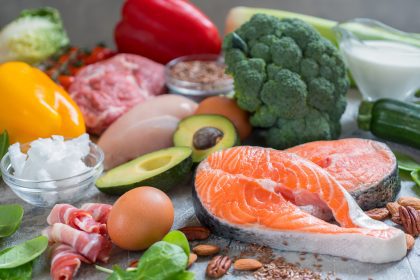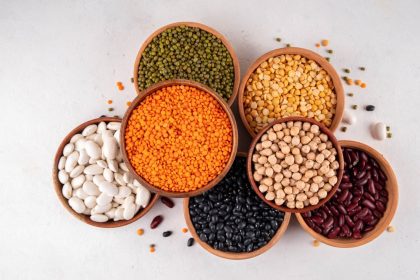In recent food discussions, Robert F. Kennedy Jr. has ignited a debate by suggesting that organic beef tallow is a healthier alternative to seed oils, which he attributes to the obesity crisis in the U.S. This statement has led to a closer look at tallow—its nutritional profile, its benefits, and potential health implications. This article will explore what beef tallow is, its nutritional breakdown, and how it compares to other popular cooking fats.
Organic beef tallow is rendered fat from cows, commonly known as beef drippings. It is created by heating and clarifying the fatty tissue surrounding a cow’s organs, which then solidifies at room temperature. Historically, tallow was a staple for frying and roasting, but it lost favor to vegetable oils as they became more accessible. In recent years, however, there has been a resurgence of interest in tallow, especially among those who follow Paleo and keto diets.
Nutritional content of organic beef tallow
The U.S. Department of Agriculture (USDA) reports that a tablespoon of beef tallow contains:
- Calories: 115
- Protein: 0 g
- Total fat: 12.8 g
- Saturated fat: 6.37 g
- Cholesterol: 14 mg
While it is rich in calories and fat, it’s the saturated fat content that raises health-related concerns.
Evaluating the health aspects of organic beef tallow
Nutrition experts advise caution when categorizing tallow as a health food. It contains beneficial fat-soluble vitamins such as A, D, E, and K, which support immune function and bone health. Beef tallow is also a source of Conjugated Linoleic Acid (CLA), which may offer benefits for skin health and metabolism. However, its high saturated fat content—approximately 50%—can contribute to heart disease and other chronic health conditions when consumed excessively. The health impact of any food depends on how much you eat and the overall quality of your diet.
Benefits of cooking with organic beef tallow
Despite its drawbacks, organic beef tallow offers certain advantages:
- High smoke point: This makes it ideal for high-temperature cooking such as frying and searing.
- Rich in fat-soluble vitamins: Essential for the body’s immune defense and bone strength.
- Choline content: Supports brain health and muscle function.
These qualities make it a desirable option for specific cooking methods, especially for those following low-carb or paleo diets.
Comparing organic beef tallow to seed oils
When it comes to cooking fats, nutritionists often debate the healthfulness of organic tallow compared to seed oils. The American Heart Association (AHA) advocates for including seed oils, such as canola and sunflower, in a balanced diet due to their unsaturated fats and heart-healthy properties. Although tallow has some positive attributes, many nutritionists still prefer the consistent benefits of extra-virgin olive oil. Olive oil is linked to reduced risks of heart disease, type 2 diabetes, and improved heart health.
Organic beef tallow versus butter
Organic beef tallow and butter are similar in that they both contain significant amounts of saturated fat. Experts recommend consuming both in moderation as part of a well-rounded diet. While tallow may be a better alternative to highly processed margarine due to its less artificial composition, it is not necessarily a must-have for cooking. Opting for a variety of fats, including unsaturated ones like olive oil and avocado oil, ensures a balanced approach to nutrition.
The resurgence of interest in organic tallow suggests it can be a valuable addition to specific dietary plans. Its high smoke point and essential vitamins make it an attractive choice for certain cooking methods. However, its saturated fat content calls for cautious consumption. To maintain a healthy diet, moderation is key, and variety is important. A diet that incorporates unsaturated fats from sources like olive oil, avocado, and nuts can complement the benefits of organic tallow.














